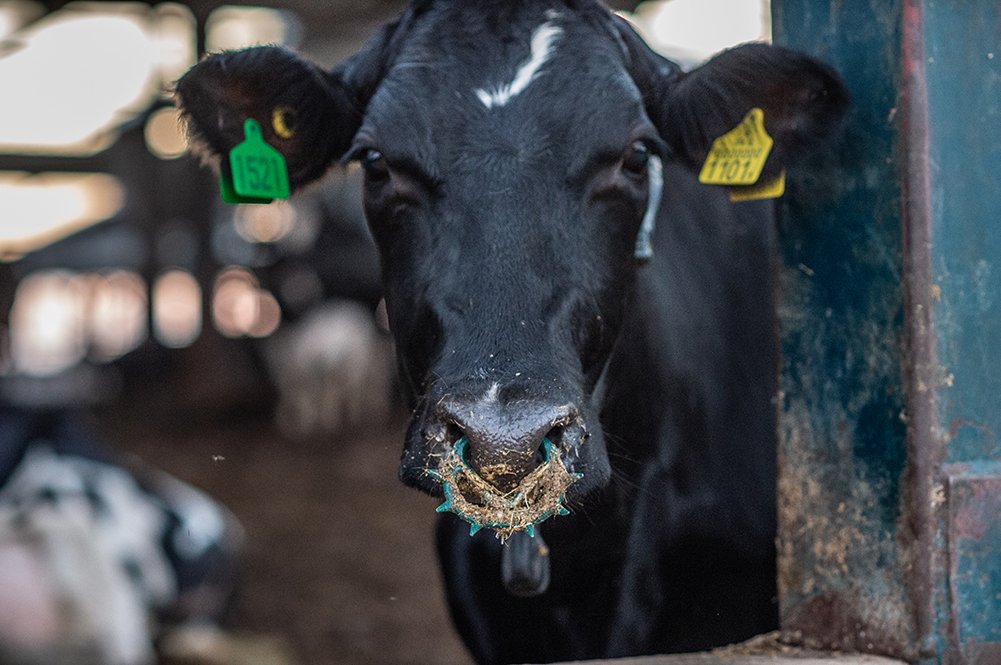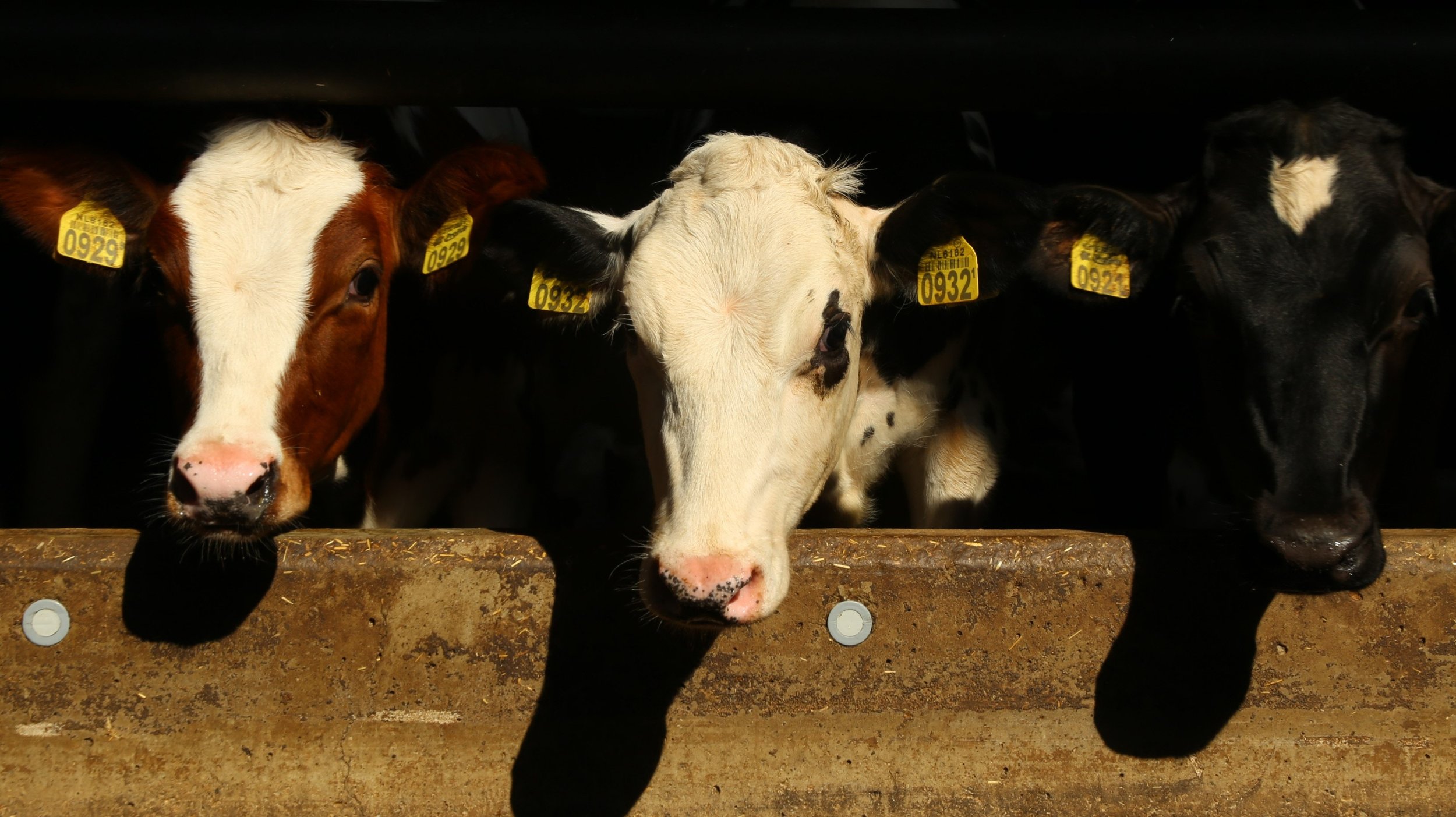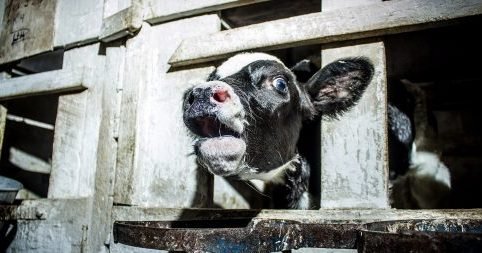Why don’t vegans drink milk?
30 Second Summary
Vegans avoid drinking milk primarily because of the inherent cruelty and exploitation involved in its production. Dairy cows are forcibly impregnated, separated from their calves shortly after birth, and often slaughtered prematurely. They endure physical and emotional suffering in cramped, unsanitary conditions. The dairy industry is also linked to health issues like lactose intolerance and increased cancer risks, while contributing significantly to environmental degradation. Plant-based milk alternatives, like oat, almond, soy, and rice milk, offer nutritious and cruelty-free options that are better for animals and the planet.
If the cow can feed her calf and is supposedly ‘not killed’, then what’s wrong with milk?
Why do cows make milk?
Many people have a false image of what the dairy industry looks like. There are numerous misconceptions such as the belief that cows need to be milked and consistently produce milk. This is incorrect. Cows are often selectively bred and artificially inseminated in order to force them to produce over 4 times as much milk as they naturally would to feed their calves. These cows are forcibly impregnated against their will from the age of just 2 years old. On top of this, dairy cows are often sent to slaughter around their fifth birthday, even though they can live up to 25 years. This is because as cows get older in the dairy industry they suffer from lameness, infection and poor fertility.
Dairy farmers forcibly impregnate cows every year. The calves are then torn away from their mothers at birth. The females are often kept to endure the same harrowing life as their mothers, whereas the males, who are deemed ‘useless’ to the dairy industry, and are either killed for veal, sold to the beef industry or shot. Therefore, if and when you buy dairy products again, you should consider the fact that you are, in turn, supporting the veal and beef industry, thus the killing of innocent beings: The dairy industry is the meat industry.
Cows produce milk for the same reason that humans produce milk; to nourish their babies. Isn’t it weird that once we stop drinking our own mother’s milk, we move onto drinking the milk produced for the young of a different species?
Is milk production cruel to cows?
Cows are sentient beings, meaning they have the capacity to experience feelings and sensations. They experience good and bad feelings, whether that’s happiness or pain. Sadly, dairy cows tend to experience the latter.
When the cow pain scale was developed it provided a glimmer of hope regarding the improvement of animal welfare. This consists of seven behaviours that are evaluated and scored from 0-2, combined to make a total pain score. If the pain score is above 5, the cow should be seen by a veterinarian. The behaviours include ear position, attention towards surroundings and head position.
Unfortunately, this does not solve the problems within the dairy industry as these signs are often ignored. It has been proved that cows in “high welfare” farms are often shut in dark, dirty sheds where they suffer from injuries and abuse. It has been estimated that there will be 55 cases of lameness for every 100 cows in the dairy industry. For over half of cows in the dairy industry to be in so much pain they show lameness is very concerning.
Aside from the fact that calves are torn away from their mothers within an hour after birth, dairy cows face numerous other forms of cruelty. Over 90% of dairy cows in the USA are confined primarily indoors, where they experience little natural light, let alone the feeling of grass. Instead they live in concrete stalls with 60% of these cows tethered by the neck, where they are powerless and unable to exhibit basic habits, therefore severely impacting their wellbeing.
A recent documentary on the UK dairy industry, featuring undercover footage, showed deliberate violence and neglect on a large dairy farm in South Wales. Workers were seen kicking and punching cows in the face, while one clip showed staff hitting cows with metal shovels across the head.
Image: Terrified cows tethered to a pole with ropes.
Hindus consider cows to be a sacred symbol of life that should be protected. This belief would surely mean cows in India aren’t exploited in the dairy industry, right?
If only this was true. Sadly, an investigation has found that cows are continuously exploited. Unholy Cattle of India exposed needless beating and tethering cows secured by ropes through pierced noses which are often embedded into their flesh.
As there is a reluctance to kill cows in India, male calves are often dumped on the streets where they are left to fend for themselves. It has been estimated that there are an estimated 5 million stray cows in India. There animals have no choice but to eat whatever they can find on the streets which is often plastic and litter.
The welfare standards of cows in Australia is said to be an important part of the Australian Animal Welfare Strategy. However, the Dominion documentary, based in Australia, highlights the many ways in which animals are regularly abused, with a section focusing on the farming industry. Its aim is to inspire and motivate people to switch to a lifestyle that avoids inflicting pain and suffering on innocent animals.
In most cases calves are taken away from their mothers within the first 24 hours after birth. This is a traumatic experience for both the mothers and their babies. Mothers will lick and nuzzle their calves clean after they are born, at which point they form a deep emotional connection with their newborn babies. However, after just a few hours when most calves are taken away, the mother cows are often heard calling their babies for weeks. This is heart wrenching for the mothers as they instantly form bonds with their babies. The calves will never see their mothers again before they are either killed for veal or kept to become the next generation of dairy cows. As the calves miss their mothers and experience severe separation anxiety, they often attempt to suckle on farmer’s fingers to ease the suffering of not being able to suckle on their own mothers udder.
In the cases where calves aren’t instantly separated from their mothers, dairy farmers must wean them from their mothers at an unnaturally early stage in life. In order to wean calves, dairy farmers will clamp spiked rings to their septem. These spikes hurt the mother’s udder when the calves attempt to suckle. This causes the cow to push her baby away, often kicking or headbutting them as she believes they are causing her pain.
Countries that portray cows as sacred or claim to have the highest welfare still inflict pain and exploitation in the dairy industry. The priority of the dairy industry is economic gain.
The cruelty of the dairy industry is not dependent on the location; it is inhumane in all circumstances.
“Cows are treated as milk producing machines, not living beings. They are subject to physical and mental torture at every stage of their life”
Is milk good for your health?
It has been estimated that around 65-70% of the global population is lactose intolerant. This can lead to several complications including calcium deficiency due to lack of calcium absorption, which can result in osteoporosis in the future. As well as this, there are many other health problems linked to milk consumption. For example, milk is linked to many cancers, especially of the breast and prostate. A study found that dairy products can increase a man’s risk of prostate cancer by 34%.
Another disturbing fact about the dairy industry is that an udder infection called mastitis is very common in dairy cows. According to the USDA, 1 in 6 dairy cows in the USA suffer from clinical mastitis. This infection causes pus to leach into milk. As the milk from all of the dairy cows on a farm is combined into large tanks, it has been predicted that all milk contains pus.
Is milk production bad for the environment?
Currently, over two thirds of the world’s agricultural land is used for livestock farming; including dairy cows. Producing meat and dairy is said to release more greenhouse gases than any other food sector, and therefore hugely contributes to climate change.
“Between 2005 and 2015, the dairy industry’s greenhouse gas emissions increased by 18% as demand for milk was growing.”
Dairy farms in England use more water than any other form of animal farming. Excessive water use is unsustainable, as water resources continue to be affected by overexploitation in Europe. It has been reported that over 60% of UK dairy producers are using water inefficiently. As well as the overuse of water for the dairy industry, another implication is manure runoff into water sources such as rivers, resulting in contamination.
In 2019, The Delhi Pollution Control Committee in India, closed down 31 dairy farms for causing water pollution, whilst citing 2,700 more. This is an alarming amount and shows the broad scale of this issue.
Cows cuddle and express love the same way we do.
Making the switch to non-dairy milk alternatives?
It has never been easier to switch to a plant-based alternative to milk. There are so many options with slightly different tastes and benefits. Popular examples include oat milk, almond milk, soya milk and rice milk, and there are many more. These alternatives are rich in protein and cholesterol free, and of course they are better for the animals and the environment. Plus, they taste great!
So, next time you do your weekly shop, why don’t you give a plant-based milk alternative a try. It’s a great feeling to know you are not contributing to the suffering of innocent animals.
For help with plant-based alternatives or switching to a vegan lifestyle, see these free resources.
References
https://extension.psu.edu/carbon-methane-emissions-and-the-dairy-cow
https://www.worldwildlife.org/industries/dairy
https://www.whatthehealthfilm.com/facts
https://www.niddk.nih.gov/health-information/digestive-diseases/lactose-intolerance/definition-facts
https://nutritionfacts.org/2011/09/08/how-much-pus-is-there-in-milk/
https://animalequality.org.uk/issues/dairy/
https://mercyforanimals.org/blog/animal-agriculture-wastes-one-third-of-drinkable/
https://www.peta.org/living/food/five-misconceptions-milk-dairy-industry/
https://www.surgeactivism.org/dairyexpose
https://www.bbc.com/future/article/20201208-climate-change-can-dairy-farming-become-sustainable
https://www.youtube.com/watch?v=30bCIsh3oh8
https://www.peta.org.au/news/calves-nose-rings/
https://www.fourpawsusa.org/campaigns-topics/topics/farm-animals/a-bonding-affair








Find out more about the Rancher Advocacy Program, helping farmers transition from animal agriculture to sanctuaries, solar farms, and veganic agriculture.